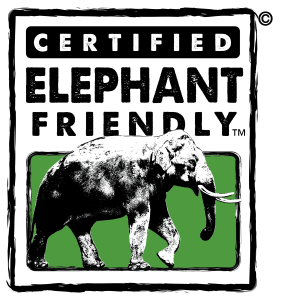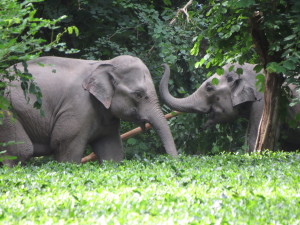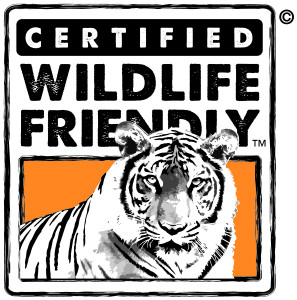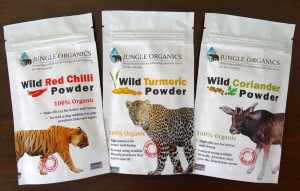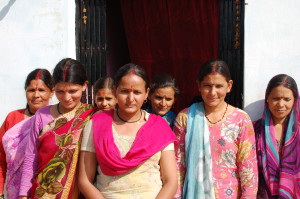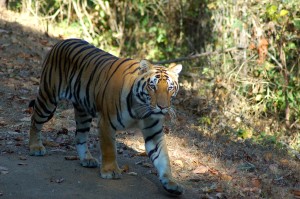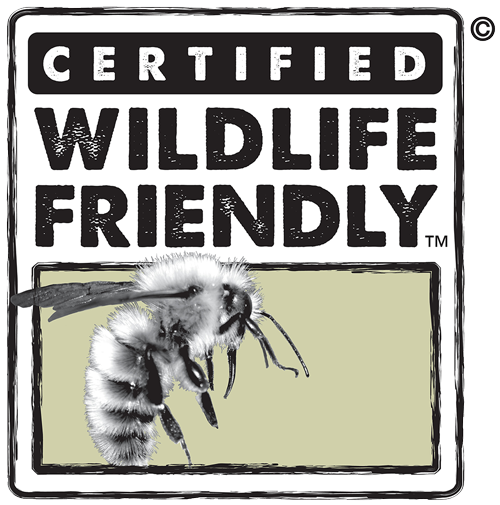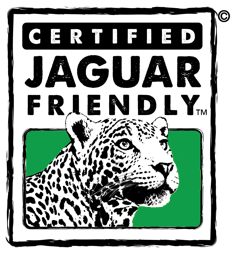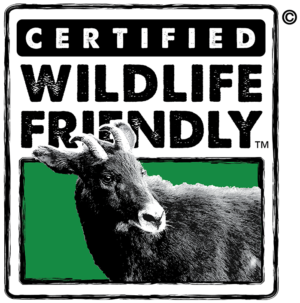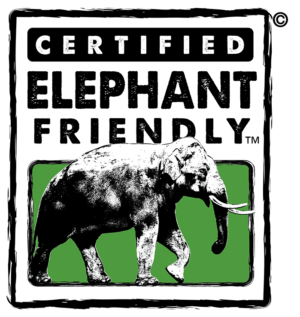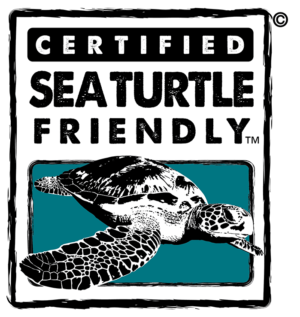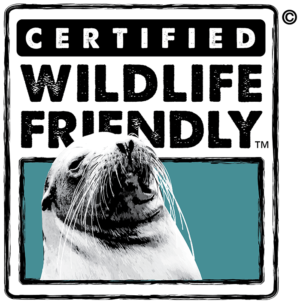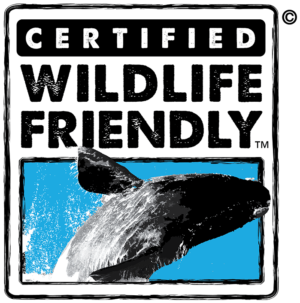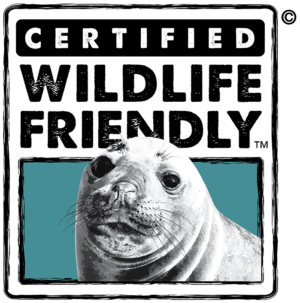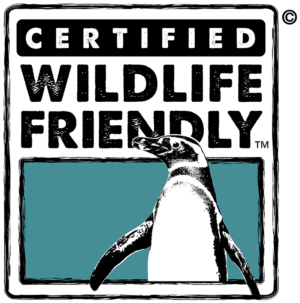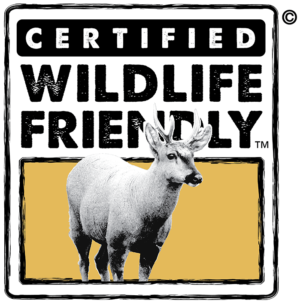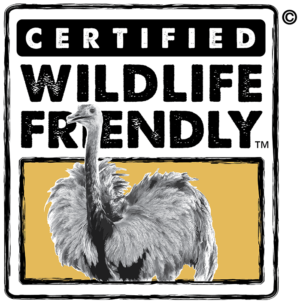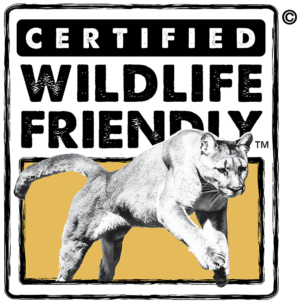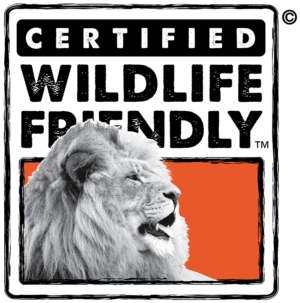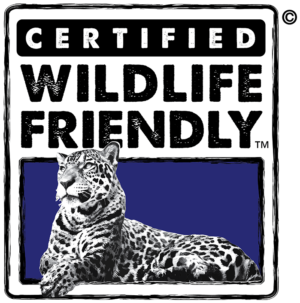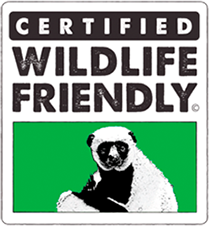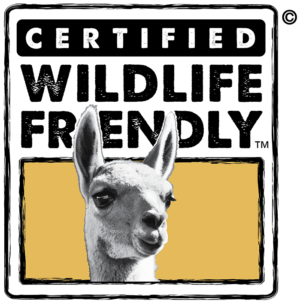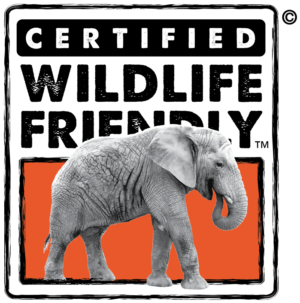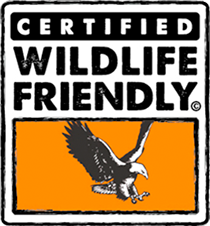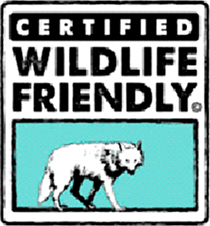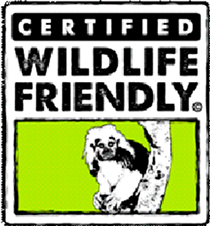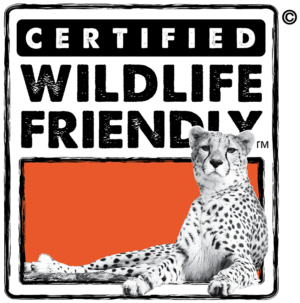French Beauty Brand Elephas Awarded Wildlife Friendly™ Certification for Shea Butter Products that Protect Elephants

Women in Burkina Faso are Key Allies in Protecting Vital Habitat for Elephants in West Africa
FOR IMMEDIATE RELEASE
Paris, France: January 2 – 2020 Founded in France and made in West Africa, luxury beauty brand ELEPHAS, and its ethical shea butter products, is the newest enterprise to be certified under the Wildlife Friendly™ family of brands. ELEPHAS, which is part of Connected Beauties, was launched to ensure that local communities sharing the landscape with African elephants have access to income-generating activities creating a positive incentive for coexisting with wildlife.
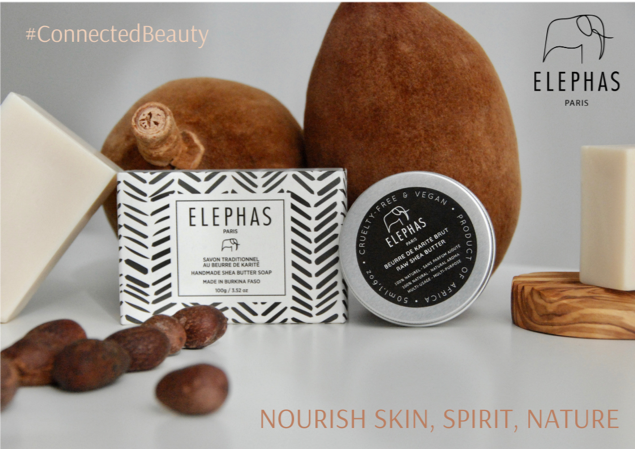
The production of ELEPHAS products begins when women harvest nuts from African shea trees and extract shea butter, highly valued for its anti-aging and moisturizing qualities. As a crucial part of this sustainable production supply chain, the women are key allies in protecting the forests which are vital habitat for one of the largest elephant populations in West Africa. Having earned the Certified Wildlife Friendly™ trustmark, this shea butter is the primary ingredient in ELEPHAS beauty products, demonstrating the company’s commitment to high quality ingredients while avoiding any palm oil derivatives, petrochemicals, or plastic packaging. The ELEPHAS mission is to foster economic independence and responsible and sustainable use of natural resources for the communities in their supply chain.
ELEPHAS is one of many social enterprises founded by eco-entrepreneur and conservationist Olivier Behra. “I consider women to be the key in Africa for a long-term economic vision which respects Nature; it made so much sense to make a link between them and women in the western world through cosmetics. Elephas’ mission is to promote this Connected Beauty: Connected to your inner self, to those who surround you, to those who provide for you through green value chains (traceable origins and supply) and to Mother Nature herself. A promise of exceptional active ingredients & efficient skincare, as well as development and sustainability to local communities – who are biodiversity’s guardians.”
“We applaud companies like Elephas who allow global consumers to vote with their pocketbooks to support communities and wildlife around the world,” said Julie Stein, Executive Director and co-founder of the Wildlife Friendly Enterprise Network. “Women supporting women who are in turn are helping to protect the remaining matriarchal African elephant herds of West Africa is a win-win-win and we love those.”
ELEPHAS is currently seeking a US distributor. If you are potentially interested or can suggest a distributor, please contact Galia: galia.nafikova@connectedbeauties.com.
###
About ELEPHAS
ELEPHAS was created to ensure that communities sharing their rich natural resources with endangered wildlife are given income-generating activities with a positive environmental impact. By harvesting their shea, capable women workers become key allies in protecting the shea tree forests, vital habitat of the largest elephant population in West Africa. For more information visit: https://www.elephas.fr/en/ and https://connectedbeauties.com/, Facebook pages: English: https://www.facebook.com/ElephasUK/ ; French: https://www.facebook.com/elephasparis/ ; Instagram: https://www.instagram.com/elephas_paris/ ; Twitter: @ElephasParis
About Wildlife Friendly Enterprise Network
WFEN and its certification programs represent grassroots farmers, ranchers, herders, artisans, indigenous peoples and conservation heroes from around the world including two World Bank Development Marketplace Award winners, a U.N. Equator Prize winner, leadership in the world’s marketplace for REDD+ Carbon Offsets, and a Time Hero for the Planet. Wildlife Friendly® products contribute to the conservation of over twelve million hectares of diverse wetlands, forests, and grasslands; protect keystone endangered species in Asia, Africa, Europe, and Latin and North America, including the Snow Leopard, Elephant, Tiger, Cheetah, Red Panda, and Wolf; and benefit over 200,000 people through increased food security, income and employment. For more information visit: www.wildlifefriendly.org, Instagram: @wildlifefriendly, Twitter: @wfen
Contact
ELEPHAS:
ELEPHAS Founder: olivier.behra@connectedbeauties.com
Brand manager France Galiya NAFIKOVA: contact@elephas.fr or galia.nafikova@connectedbeauties.com
Brand manager UK Louise POTTS: louise.potts@elephas.fr
WFEN: Christine Lippai – christine@wildlifefriendly.org
BeadWORKS, which empowers women and conserves wildlife in northern Kenya, is now Certified Wildlife Friendly™
FOR IMMEDIATE RELEASE
ISIOLO, kenya: – 31 march-2017– The Wildlife Friendly Enterprise Network (WFEN), a global community dedicated to the development and promotion of products and tourism that contribute to the conservation of threatened wildlife and to the economic vitality of rural landscapes, is pleased to announce the awarding of Wildlife Friendly® Certification to BeadWORKS Kenya, a business line of Northern Rangelands Trading Limited (NRTT), providing conservation-linked economic opportunity to people and communities in northern Kenya.
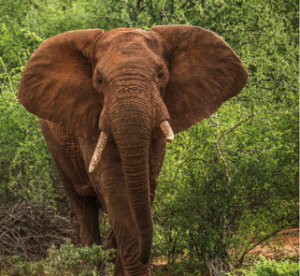
photo credit Ami Vitale
When you empower women in northern Kenya, you are supporting children’s education, boosting local economies and protecting wildlife. Every BeadWORKS item is handcrafted by one of over 1,000 women from 9 NRT community conservancies. The women gather together under the shade of an acacia tree to craft individual beaded items for sale all over the world. Through BeadWORKS, they are able to earn a living using their traditional beading skills rather than through livestock grazing, charcoal production and other environmentally damaging activities.
BeadWORKS empowers pastoralist women and changes their attitudes about local wildlife as they discover the connection between bead sales and wildlife protection. The ripple effects of these attitudes spread through their families and communities, creating broader impacts for wildlife. Many species – in particular elephants – are thriving as sustainable businesses grow around conservation. Since 2012, elephant poaching in northern Kenya’s community conservancies has dropped by 53%.
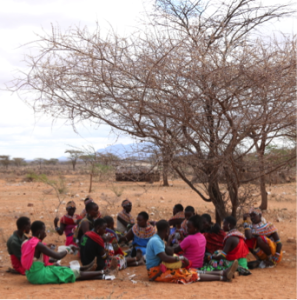
By buying Certified Wildlife Friendly® products from Beadworks consumers are helping empower women and families, and conserve wildlife and natural resources in northern Kenya.
###
About Wildlife Friendly Enterprise Network
WFEN and its certification programs represent grassroots farmers, ranchers, artisans, indigenous peoples and conservation heroes from around the world, including two World Bank Development Marketplace Award winners, a U.N. Equator Prize winner, leadership in the world’s marketplace for REDD+ Carbon Offsets, a Time Hero for the Planet, and a National Geographic Big Cats Initiative grantee. Certified Wildlife Friendly® products contribute to the conservation of over twelve million hectares of diverse wetlands, forests, and grasslands; protect keystone endangered species in Asia, Africa, Europe, and Latin and North America – including the snow leopard, tiger, elephant, cheetah, red panda, and wolf – and benefit over 200,000 people through increased food security, income and employment. For more information visit: www.wildlifefriendly.org
About BeadWORKS
BeadWORKS Kenya is a business line of Northern Rangelands Trading Limited, providing conservation-linked economic opportunity to people and communities in northern Kenya. For more information visit: https://www.beadworkskenya.com/
Instagram @beadworkskenya
Facebook: Beadworks Kenya
https://www.facebook.com/beadworkskenya/
Contact
BeadWORKS
Beatrice Lempaira – beatrice.lempaira@nrt-kenya.org
Wildlife Friendly
Julie Stein: Julie@wildlifefriendly.org
Tea companies join forces with wildlife conservation efforts to launch the world’s first certification program aiming to provide incentives for conservation of elephants in the wild
FOR IMMEDIATE RELEASE
ASSAM, India – November 29, 2016 – The Wildlife Friendly Enterprise Network (WFEN) and the University of Montana jointly announce a first-of-its kind certification program which will empower consumers to play an active role in conservation, and provide tea-growing companies with a financial incentive to make positive changes for elephants within tea plantations. The Balipara Foundation of India has spearheaded support for this initiative by extending an invitation to Indian tea companies to join the effort to implement specific changes that top elephant experts agree will have positive impacts on Asian elephant conservation.
Injury, electrocution, poison and other conflicts with humans, combined with widespread habitat loss and degradation, have left this species under great pressure to survive in the wild long-term. Asian elephant populations are declining faster than their better-known African elephant cousins. In a number of countries Asian elephants are extinct or nearly extinct in the wild, although the media and general public remain largely unaware that this species may someday face widespread extinction if the trend is not reversed with strategic and well-timed conservation interventions.
Certified Elephant Friendly™ Tea has been developed as a result of years of research and community-based conservation effort in Assam, the primary tea growing region in India, focusing on identifying the key threats to elephants and strategies to address them. As a partner in this new initiative, University of Montana’s Lisa Mills says, “It is time to recognize that the very things that we buy across the globe are often in direct odds with the conservation of wildlife. If the products we purchase were an opportunity to reverse this trend, for elephants to last a bit longer and roam a bit more freely on this earth, would we pay the price? Can we have our tea and drink it too?” With rapid growth in the tea market in the U.S. in 2015 and 2016, and consumers becoming increasingly aware of and concerned about how their spending impacts the environment, retailers and U.S. based tea companies have expressed early interest in marketing products certified under this program. There is also interest in certification of other products as Elephant FriendlyTM, such as coffee grown in elephant movement areas in south India.
“Elephant populations are in trouble wherever they exist around the world,” said WFEN Director Julie Stein. “Poaching and the illegal wildlife trade are having devastating effects on populations, with habitat conversion and human-elephant conflict both creating additional compounding mortality. Elephants simply cannot reproduce fast enough to survive this crisis. These are complex issues to solve and global citizens are often left feeling helpless as they watch species blink out before their eyes and in their own lifetimes, but now consumers can be empowered to do something tangible to reward ethical companies that are going the extra mile to coexist with elephants so that their children will not live in a world without elephants.”
The Elephant Friendly™ Tea Certification Program was announced at the Balipara Foundation’s Eastern Himalayan Naturenomics™ Forum in November 2016 in Guwahati, India, which was held in conjunction with the IUCN Asian Elephant Specialist Group meeting. This important gathering of the some of the world’s top Asian Elephant experts was also an opportunity to bring major tea industry representatives together to plan action steps in support of the
long-term survival of Asian elephants. Discussions around the concept of Elephant Friendly Tea™ included major tea companies such as Amalgamated Tea (APPL), the second largest tea company in India, the India Tea Association, other tea companies and representatives from leading conservation organizations from across the globe.
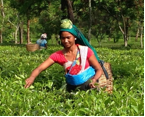
Photo © Lisa Mills
The tea-growing estates of India, established in the 1800’s, replaced former elephant habitat with plantations. Worker homes, roads, irrigation ditches, fencing and other human-driven activity expanded with the growth of the industry and continues to this day. These non-Elephant Friendly barriers pose a real threat to ancient migration patterns and thus the survival of elephant herds that must access reliable sources of water and food, as well as safe places to raise their young. Because natural cycles of native forest growth depend on seed dispersal by elephants as they move and deposit undigested tree seeds to forest openings, elephants are often referred to as the “Farmers of the Forest.” Elephant Friendly Tea™ will give tea drinkers around the world an important role in helping to ensure these iconic and charismatic animals have a future in the wild.
###
About University of Montana
The University of Montana is part of the Montana State University Education System in the U.S.A., and is home to the top-ranked Wildlife Biology Program in North America, as well as to one of the top Business Schools in the nation that emphasizes sustainable business development. Through the university’s Broader Impacts Group, wildlife conservation research and enterprise come together to help address some of the world’s toughest challenges around conservation in the face of major global changes. https://www.umt.edu/
About Wildlife Friendly Enterprise Network
WFEN is the global brand leader on threatened and endangered species-focused certification programs, from Gorilla Friendly™ to Predator Friendly® to Jaguar and Sea Turtle Friendly™ certification programs. WFEN represents global companies as well as grassroots farmers, ranchers, artisans, indigenous communities and conservation heroes from around the world including two World Bank Development Marketplace Award winners, a U.N. Equator Prize winner, leadership in the world’s marketplace for REDD+ Carbon Offsets, a Time Hero for the Planet, and a National Geographic Big Cats Initiative grantee. Certified Wildlife Friendly® products contribute to the conservation of over twelve million hectares of diverse wetlands, forests, and grasslands; protect keystone endangered species in Asia, Africa, Europe, the Americas, including the Snow Leopard, Elephant, Tiger, Cheetah, and Wolf; and benefit over 200,000 people through increased food security, income and employment. For more information visit: www.wildlifefriendly.org
Contacts:
Julie Stein, Executive Director
Wildlife Friendly Enterprise Network
julie@wildlifefriendly.org
Lisa Mills, Program Manager, Elephants and Tea
Broader Impacts Group, University of Montana
lisa.mills@mso.umt.edu
Banner photo credit: Subit Sawra
New conservation enterprise, Jungle Organics™, supports smallholder women farmers producing high quality spices in harmony with wildlife
FOR IMMEDIATE RELEASE
NEW DELHI, India – OCTOBER 26 2016 The Wildlife Friendly Enterprise Network (WFEN) and Jungle Organics™ headquartered in New Delhi, India are pleased to announce that Turmeric Powder, Ground Red Chili Pepper and Coriander Powder grown adjacent to Jim Corbett National Park – core habitat for tigers, leopards, elephants and other globally vulnerable wildlife – have earned Wildlife Friendly™ certification under the Jungle Organics™ brand. The spices are grown on women-operated organic farms that provide safe passage through an important corridor for wildlife as well as access to fresh water sources. In addition, unlike many other crops which are attractants to wildlife, these aromatic spices are not an attractant and actually tend to reduce human-wildlife conflict leading to better attitudes and greater acceptance among local communities towards wildlife. As a result there are fewer retaliatory killings of big cats which are already in jeopardy globally.
“This project hits the mark on so many counts,” said WFEN Director Julie Stein. “From research around the world we know that empowering rural women is the key to food security, nutrition and poverty reduction. And with apex predators in trouble everywhere we are delighted to welcome not only our first enterprise in India – but our first protecting tigers – a flagship endangered species with only a few thousand remaining in breeding populations in the wild. Jungle Organics™ is truly a leading edge conservation enterprise and was formed from inception around the concept of Wildlife Friendly™ farming. We are thrilled to see this kind of entrepreneurial innovation popping up in different ways around the world and supporting wildlife, women and their families. It is proof-of-concept that coexistence with large carnivores can work to support the triple bottom line of people, planet and profit.”
“Subsistence farmers are coexisting with wildlife across India, making the crops they produce and the role their farms play in allowing wildlife to roam free truly unique. The presence of tigers and leopards on the farms is an indicator of the health of the ecosystem and means that the spices and herbs are grown in pristine environments thriving on water from Himalayan rivers and nutrient rich soils. This results in higher potency spices and herbs with better medicinal properties that can contribute to health and well-being. We are excited to see recognition of the linkage between Wildlife Friendly™ farming and production of superior quality ingredients based on the interest coming from Delhi, Bombay and other cities, to purchase our products” said Jungle Organics™ Founder Kaavya Varma, who is an expert in implementing green economy strategies. “This is particularly critical because if spices that are used on an everyday basis can also contribute to protecting big cats then it is much easier for everyone to participate in saving tigers and leopards and can make conservation more mainstream.”
“With the multiple human-caused threats faced by wildlife, it is significant that Uttarakhand is the first place where the State Government has been forward thinking in supporting this enterprise” Ms. Varma explained, “and the State Organic Commodity Board has shown great leadership in partnering with Jungle Organics™ to enhance the livelihoods of small-holder farmers and create awareness amongst farmers about wildlife. These agricultural practices can have a significant impact on conservation and the incomes of women farmers in remote areas.”
In addition to tigers, other threatened and endangered wildlife using these forests and farms as habitat and corridors include leopards, Asiatic black bears, tigers, Himalayan serow, ghural, pangolins, elephants, peacocks, wild boars, sambar deer, porcupines, monkeys and kakar or barking deer. The farms are unfenced, making them particularly Wildlife Friendly™, and farmers use low tech but highly effective and labor intensive foot patrols throughout the night in separate groups of women or men making noises to reduce crop destruction.
Uttarakhand State contains the highest amount of forest cover in India and is home to 1000 leopards and 340 tigers, 10% and 16%, respectively, of the total populations of both animals in India. Leopards and tigers are threatened everywhere they still exist by poaching, a decrease in their prey base, protected area encroachment, deforestation, and roads. Nearly 70% of the farmers in India are smallholder family operations and many of them live in landscapes that overlap with wildlife making it especially important that Indian models of conservation support these farmers and that best practices which support wilderness and biodiversity conservation are replicated in other States beyond Uttarakhand.
###
About Jungle OrganicsTM
Jungle OrganicsTM works with 100% organic certified farmers who consciously choose to live by forests and wildlife, for the authenticity of their produce, even at the cost of low-yields on their lands. Using wildlife friendly practices, they ensure minimal human intervention to avoid taking away from the originality of the spices and herbs they grow. Our goal is to offer authentic spices and herbs, by supporting and resurrecting pristine farming practices that emphasize coexistence with wildlife, and thus, reduce wildlife-human conflict and the consequent damage that follows. For more information, email team@jungleorganics.in or visit www.jungleorganics.in.
About Wildlife Friendly Enterprise Network
WFEN and its Certified Wildlife Friendly®, Predator Friendly®, Certified Gorilla Friendly™, and Jaguar Friendly™ and Sea Turtle Friendly™ certification programs represent grassroots farmers, ranchers, artisans, indigenous communities and conservation heroes from around the world including two World Bank Development Marketplace Award winners, a U.N. Equator Prize winner, leadership in the world’s marketplace for REDD+ Carbon Offsets, a Time Hero for the Planet, and a National Geographic Big Cats Initiative grantee. Certified Wildlife Friendly® products contribute to the conservation of over twelve million hectares of diverse wetlands, forests, and grasslands; protect keystone endangered species in Asia, Africa, Europe, the Americas, including the Snow Leopard, Elephant, Tiger, Cheetah, and Wolf; and benefit over 200,000 people through increased food security, income and employment. For more information visit: www.wildlifefriendly.org
Contacts:
Julie Stein, Executive Director
Wildlife Friendly Enterprise Network
julie@wildlifefriendly.org
Kaavya Varma, Founder & CEO
Jungle OrganicsTM
kaavya@jungleorganics.in


